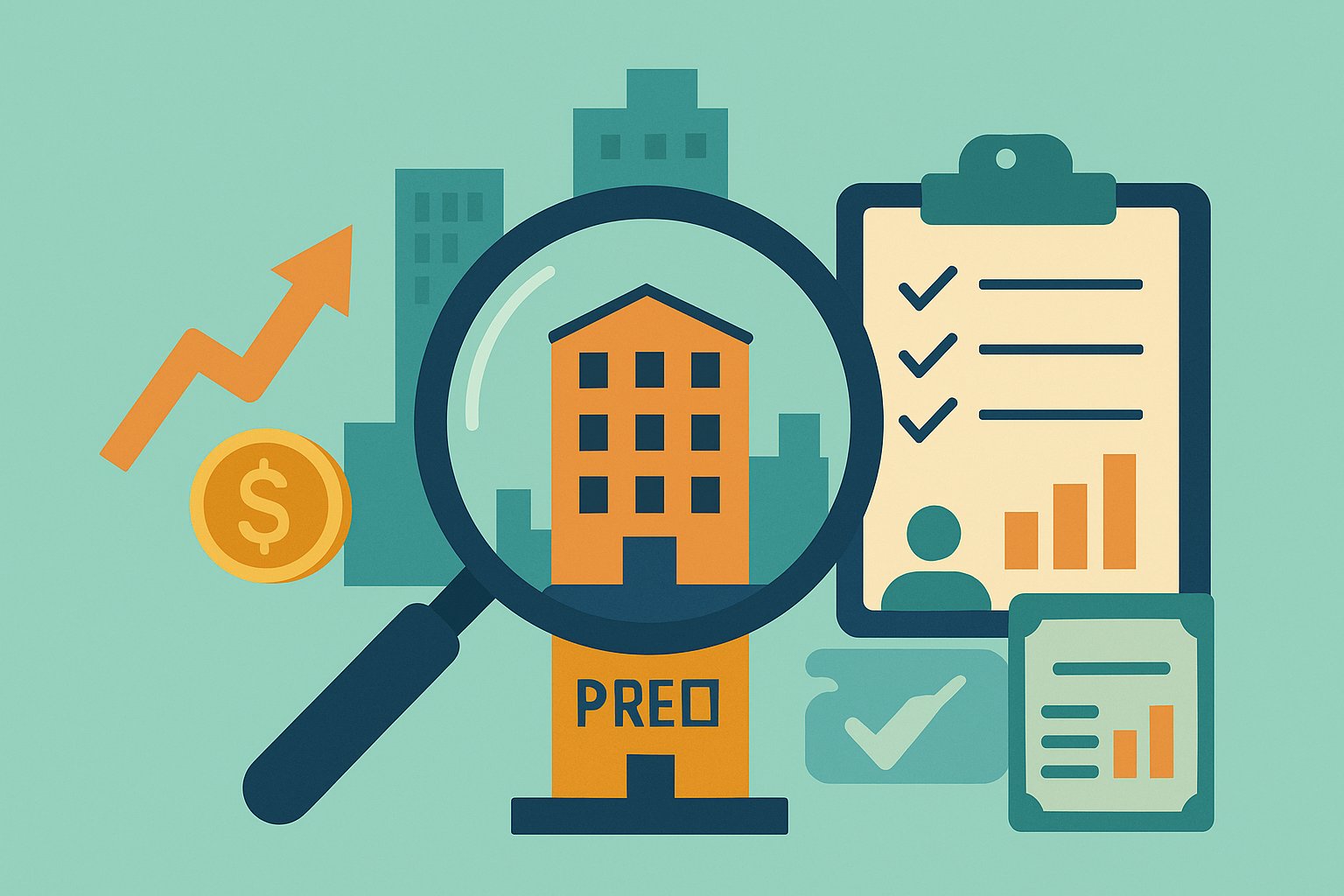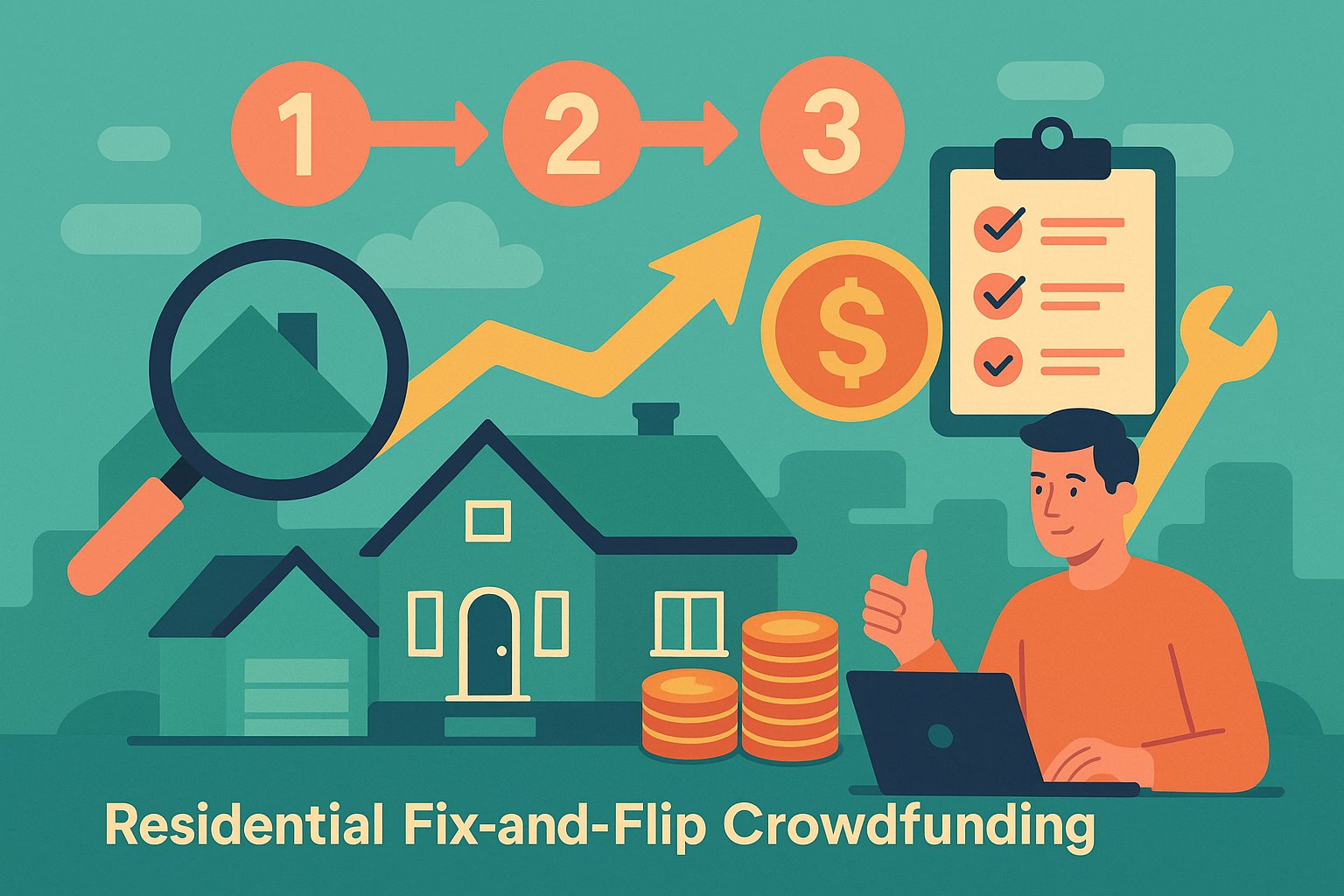Discovering the Right Crowdfunding Path
In the democratized world of real estate investing, crowdfunding has emerged as an accessible gateway to properties once reserved for institutional players. Yet within this blossoming ecosystem, investors must choose between two primary lanes: residential and commercial crowdfunding. Each property type offers unique dynamics in terms of cash flow potential, risk exposure, and portfolio fit. Understanding their differences—and how they align with your personal objectives and risk appetite—is essential for charting a successful real estate journey. This deep dive illuminates the nuances of residential versus commercial crowdfunding, empowering you to select the path that best suits your financial roadmap.
The Foundations of Real Estate Crowdfunding
At its core, real estate crowdfunding pools capital from multiple investors to fund property acquisitions, developments, or renovations. Online platforms streamline the process—from investor onboarding and regulatory compliance to deal sourcing and asset management—allowing participants to commit as little as $5,000. Thanks to Regulation D and Regulation A+ frameworks, both accredited and non-accredited investors can partake in a diverse array of offerings. Yet while crowdfunding unifies the method of investment, the underlying property type—residential or commercial—drives distinct performance characteristics, risk profiles, and operational complexities.
Residential Crowdfunding Unpacked
Residential crowdfunding focuses on single-family homes, small multi-family units, condominiums, and large apartment complexes. These assets generate income through tenant rent payments, offering investors predictable cash flows that often correlate closely with local housing demand. Platforms typically present residential deals in two categories: buy-to-rent investments, where turnkey properties produce monthly distributions, and value-add renovations, where sponsors refurbish homes or apartments before sale or re-rental. The residential sector’s most attractive feature for newcomers is its intuitive appeal—virtually everyone understands the fundamentals of renting a house. Furthermore, residential markets often display more consistent occupancy rates, since housing is a basic need, cushioning portfolios against economic cycles.
Commercial Crowdfunding Demystified
Commercial crowdfunding encompasses properties such as office buildings, retail centers, industrial warehouses, and large-scale apartment complexes. Investors gain exposure to institutional-grade assets that command higher entry thresholds in traditional channels. Commercial real estate typically offers longer lease terms—spanning five to ten years—anchored by corporate or business tenants, delivering stability in cash flow. On the other hand, commercial markets are subject to broader economic trends, evolving workplace behaviors, and sector-specific disruptions (for instance, the rise of e-commerce affecting brick-and-mortar retail). The entrance of crowdfunding platforms into this space bridges the gap between Main Street investors and trophy assets, yet demands a steeper learning curve to assess market fundamentals and tenant credit quality.
Comparing Cash Flow Dynamics
One of the primary distinctions between residential and commercial crowdfunding lies in income predictability. Residential properties tend to yield steady, incremental rents with shorter lease agreements—often 12 months—leading to more frequent turnover but also quicker rent adjustments based on market conditions. In contrast, commercial leases lock in rental rates for longer periods, shielding investors from near-term fluctuations but potentially causing missed opportunities if market rents surge during the lease term. While residential portfolios respond nimbly to demographic shifts, commercial streams can provide a smoother revenue runway, especially when underwritten with high-credit tenants or diversified tenant mixes within a single asset.
Risk Considerations Across Property Types
All real estate entails risk, yet the nature of risk differs between residential and commercial assets. Residential deals face tenant turnover, maintenance surprises, and local housing market cycles. However, because housing demand remains relatively inelastic—people always need a place to live—residential crowdfunding can exhibit lower vacancy risk and quicker lease-up times. Commercial projects, by contrast, bear exposure to sector-specific headwinds: office vacancies in a hybrid-work era, retail closures due to e-commerce shifts, or supply chain disruptions in industrial parks. Nevertheless, strong commercial underwriting often includes thorough tenant credit analysis and longer lease commitments, insulating investors from frequent rent volatility and offering a potentially higher barrier to entry for new competitors.
Entry Thresholds and Diversification Strategies
Residential crowdfunding appeals to investors with smaller capital pools, thanks to lower per-deal minimums and the abundance of single-family or small multifamily offerings. This accessibility facilitates rapid diversification, as you can spread modest sums across multiple neighborhoods or property types. Commercial crowdfunding generally commands higher minimum investments—often $25,000 or more—due to the scale and sophistication of deals. However, commercial platforms increasingly introduce pooled funds or syndicated vehicles that allow smaller allocations into diversified collections of office, retail, and industrial assets. Balancing both property types within a unified crowdfunding portfolio can optimize risk-adjusted returns, blending the nimbleness of residential deals with the institutional-strength cash flows of commercial holdings.
Liquidity Profiles and Hold Periods
Crowdfunded real estate is inherently a medium- to long-term endeavor. Residential projects, especially fix-and-flip or light-renovation plays, may offer shorter hold periods of 12 to 24 months, enabling quicker returns on capital. Buy-to-rent deals often span three to five years, coinciding with standard property appreciation cycles. Commercial investments, anchored by lengthy leases and larger transaction structures, typically require five to ten-year holds. While both residential and commercial crowdfunding platforms may offer secondary markets or early redemption programs, these mechanisms carry liquidity discounts and limited windows. Aligning your investment horizon with each property type’s expected hold period ensures you avoid mismatches that could lock up capital when you need it most.
Fees and Cost Structures
Platform and sponsor fees can significantly impact net returns across both property categories. Residential crowdfunding often features acquisition fees, asset management fees, and disposition fees calibrated to smaller deal sizes. Commercial offerings may layer on more complex fee waterfalls, including financing fees, construction management fees, and promote structures rewarding sponsors for exceeding return hurdles. Transparent disclosure of fee schedules—ideally expressed as an all-in expense ratio—is critical. Residential investors should compare fees relative to projected yields, while commercial participants must factor in additional underwriting, leasing brokerage, and capital expenditure management costs embedded in larger-scale projects.
Tax Implications and Advantages
Investing in residential or commercial properties through crowdfunding entails nuanced tax considerations. Residential assets benefit from depreciation deductions over a 27.5-year recovery period, offsetting some taxable rental income. Commercial properties enjoy a longer 39-year depreciation schedule but often leverage cost segregation studies to accelerate depreciation of component assets, enhancing near-term tax benefits. Additionally, both property types can qualify for 1031 exchange compatibility—allowing investors to defer capital gains taxes by reinvesting proceeds into like-kind real estate ventures. Certain residential markets also present qualified opportunity zone (QOZ) deals, providing capital gains deferral and potential exclusion incentives. Understanding these tax strategies helps you maximize after-tax returns irrespective of property type.
Market Drivers and Geographic Considerations
Residential investment returns hinge closely on population growth, job creation, and housing supply constraints at the neighborhood level. Micro trends—such as school district quality, local zoning regulations, and infrastructure development—can dramatically impact rental demand and property values. Commercial returns, while influenced by broader economic cycles, depend on industry-specific demand drivers: e-commerce proliferation boosting industrial warehousing; online retail compressing brick-and-mortar retail footprints; or shifting office utilization patterns reshaping downtown districts. Geographic diversification across both residential and commercial deals can smooth performance, as localized headwinds rarely affect multiple markets with the same intensity simultaneously.
Underwriting Rigor and Due Diligence
Due diligence sits at the heart of effective crowdfunding evaluation. Residential deals often emphasize appraisals, rent comparables, and inspection reports to validate renovation scopes and rental projections. Commercial underwriting requires deeper tenant analysis, lease roll reviews, and environmental assessments, given the larger scale and complexity of the assets. Platforms catering to commercial offerings typically supply third-party engineering studies and tenant credit ratings, whereas residential sponsors may rely more on local market expertise. As an investor, calibrating your scrutiny to the property type ensures you grasp the most material risk factors—be they unanticipated repair costs for a home or covenant breaches by a single commercial tenant.
Technology and Platform Selection
The quality of your crowdfunding experience often mirrors the sophistication of the platform. Residential portals frequently highlight user-friendly dashboards, neighborhood heat maps, and renovation workflows. Commercial platforms may focus on tenant visualization tools, floorplan analytics, and investor webinars led by leasing and finance experts. Emerging technologies—like blockchain for share tokenization—have started to infiltrate both categories, promising enhanced liquidity and transparent transaction records. Prioritizing platforms that align with your property type preference, deliver robust reporting, and foster clear sponsor communication will elevate your investment journey and confidence.
Blending Both Worlds: Hybrid Crowdfunding Portfolios
While many investors gravitate toward either residential or commercial crowdfunding, the most resilient portfolios often blend the two. Combining quick-turnaround residential flips with longer-term commercial holds can balance cash flow timing and yield objectives. Residential returns can fund new commercial acquisitions, and stable commercial distributions can buffer residential deal cycles. Furthermore, hybrid crowdfunding funds—offered by some leading platforms—automate this diversification, deploying capital across dozens of residential and commercial deals under one umbrella. Such strategies amplify the benefits of each property type while dispersing idiosyncratic risk across a broader asset pool.
Aligning Property Type with Personal Objectives
Choosing between residential and commercial crowdfunding ultimately boils down to your individual goals. If you prioritize shorter hold periods, lower entry thresholds, and tangible assets you understand intuitively, residential deals may resonate most. Alternatively, if you seek institutional-grade assets with long-term leases, higher capital requirements, and potential for greater scale, commercial offerings could be your ideal fit. Investors focused on tax efficiency might lean toward commercial cost segregation strategies, while those seeking rapid capital recycling could favor residential fix-and-flip models. Mapping your financial objectives—be they monthly income targets, capital preservation, or growth aspirations—will clarify which property mix best aligns with your path.
Growing with Experience: Scaling Your Crowdfunding Portfolio
As you accumulate successes and lessons learned, scaling across both property types becomes increasingly feasible. Reinvesting gains from residential deals into commercial syndications diversifies exposure and deepens your real estate expertise. Conversely, leveraging steady commercial distributions to explore new residential markets can uncover high-growth neighborhoods. Many platforms support automated rebalancing tools, enabling you to maintain target allocations between residential and commercial categories. Continuously refining your due diligence checklist and expanding sponsor networks elevates your capacity to source and evaluate premier crowdfunding opportunities, regardless of property type.
Embracing the Future of Crowdfunded Real Estate
The boundaries between residential and commercial crowdfunding continue to blur as platforms innovate hybrid offerings, tokenized share structures, and AI-driven underwriting models. Investors can anticipate even more tailored risk-return products that fuse the agility of residential plays with the stability of commercial assets. Regulatory enhancements—and increasing secondary market liquidity—will further democratize access, empowering smaller investors to navigate complex commercial landscapes and micro-residential niches alike. By staying abreast of platform innovations and market trends, you position yourself to capitalize on the evolving landscape of crowdfunded real estate.
Crafting Your Personalized Path Forward
Selecting between residential and commercial crowdfunding—or forging a balanced combination of both—marks a pivotal step in your real estate investing evolution. By dissecting cash flow dynamics, risk profiles, diversification strategies, tax treatments, and platform capabilities, you gain the clarity to match property type with your unique objectives and life stage. Whether you seek the familiarity and agility of residential homes or the scale and depth of commercial assets, crowdfunding platforms offer the tools and transparency to bring your investment vision to life. Armed with this guide, you’re equipped to chart a confident course through the dynamic world of real estate crowdfunding—leveraging the strengths of each property type to unlock lasting wealth and passive income.




